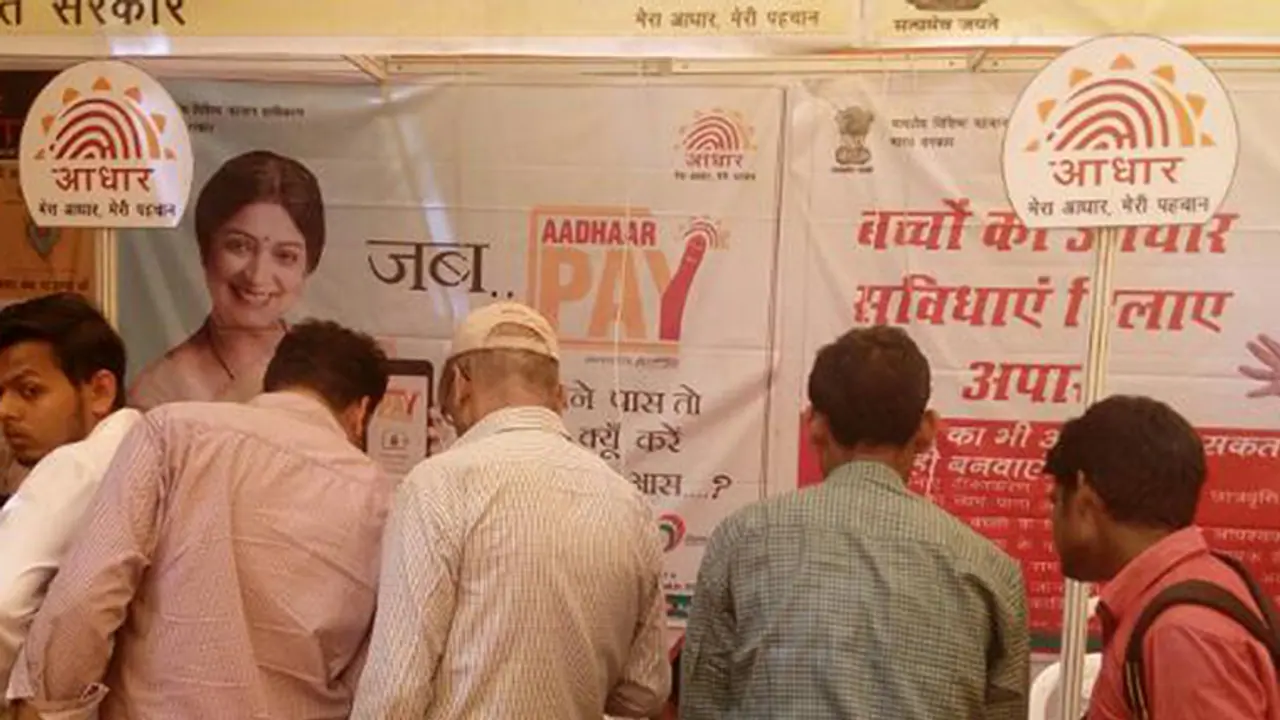Aadhaar has a whopping biometric database with over 1.13 billion registrations. Out of these, 100 crore entries are unverified. Linking such entries to subsidies, elections, and so on could be dangerous.
When Aadhaar was proposed, it was touted to serve as a citizen identity card and a means to help the poor of the country claim subsidies and other benefits. This would mean removing middlemen and eventually the corruption that lingers between subsidies and the poor. Despite the hordes of identity cards issued, it was seen as a card for citizens, especially those who find it difficult to open a bank account, get a loan owing to lack of documents.

Over the past few months, Aadhaar has been getting the required legal backing to be enforced as a mandatory document. From elections to downloading government survey maps and proposed mandatory linking to bank accounts and mobile services, it is in the process to become an integrated part of our lives.
But before the government sets out on mandatory linking it to elections, banks and so on, there is enough proof highlighting incidents of issuing fake Aadhaar cards. While we want to keep up our Aadhaar project, which essentially yet debatably is the right stepping stone in the digital era. We’ve seen similar projects deployed by countries like Brazil, Malaysia and Indonesia, but there is no denying that fake Aadhaar cards exist and the implications could be dangerous, to say the least.
 As of March 2017, India's identification project has captured demographic and biometric data offering a unique 12 digit number for over 1.13 billion registered users. This makes it majority of the population.
As of March 2017, India's identification project has captured demographic and biometric data offering a unique 12 digit number for over 1.13 billion registered users. This makes it majority of the population.
Issuing fake cards doesn't just defeat its purpose, but it could mean far-reaching ramifications. According to a Tribune India, a Pakistan-based Jaish-e-Mohammad terrorist managed to get a fake Aadhaar issued by authorities, which came to light when he was arrested last year. Reportedly, now a list of immigrants had been made to avoid illegal issuing of Aadhaar cards.
Today, we have the biggest biometric database in the world, however, little has been done in understanding the nitty gritties for creating an identity related resident database that began back in 2006-07. In a poor state of affairs, the initial steps taken were wobbly as the new rules were passed only years later in 2016.
The new rule requires verified database, rather than randomly stocking resident data. Now, prior to the Aadhaar Act 2016, there have been about 100 crore accounts that are unverified - 40 crore between the period of 2014-2016 and 60 crore prior to that. The issue was first raised by MP Rajeev Chandrashekar highlighting concerns over the 100 crore registrations that do not come under the new Aadhaar Act passed in 2016 and have been issued without efficient verification.
He has pointed out at the need of making UIDAI accountable. For instance, transparency of sort, at how the database is being handled, errors and so on. Adding to the privacy and misuse issues, he has also demanded enhanced protection of a users' data.
So, the key question is – what about the verification of these 100 crore registrations, and whose responsibility it is to weed out the fake ones from the genuine.
According to a Tribune India report, a Pakistan-based Jaish-e-Mohammad terrorist managed to get a fake Aadhaar issued by authorities, which came to light when he was arrested last year. Soon, a list of immigrants had been made to avoid illegal issuing of Aadhaar cards. And, this could be rather just one of the many incidents that may have gone unnoticed. There has also been a sting operation by CobraPost revealing how fake Aadhaar cards are issued for a paltry sum. Need we say more! There are enough reports to show issuing of fake Aadhaar cards is rampant.
If Aadhaar is to be the proof of identity of an Indian citizen, there should a system in place to monitor those issuing it. The proliferating small agencies should have been vetted against malpractices. Such acts could easily compromise the sovereignty of India. UIDAI has already admitted to have cancelled 3.8 lakh fake Aadhaar cards, but there is still the need to lookup at agencies that are creating a menace.
There is a lot of cleaning up to be done, but the question is, are enough measures being taken to do so?
Disclaimer: Rajeev Chandrasekhar is the chairman of Jupiter Capital, which has investments in Asianet News Network Private Limited that publishes Asianet Newsable.
